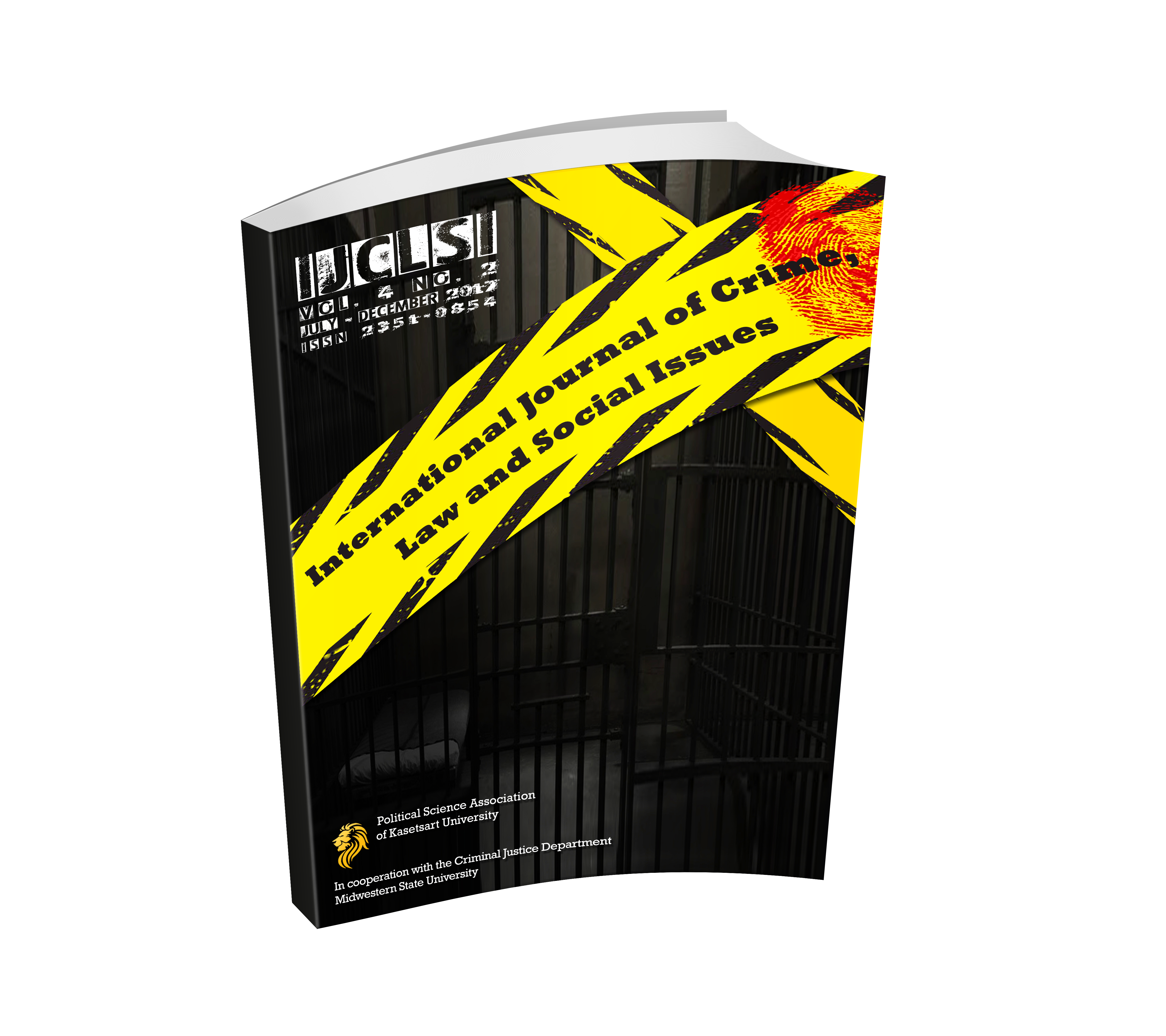Criminal Impact from the So-called ‘Wua Laan’ in Phetchaburi, Thailand
Keywords:
Gambling, Crime, Wua LaanAbstract
There are various types of gambling in Thai society such as those of general and local gambling. The ox racing gambling or known as ‘Wua Laan’ has its origin from the traditional Wua Laan ox racing game, a local festivity that represents the identify of Phetchaburi province. The gambling is permitted under the 1935 Gambling Act, thereby, rendering all parties within the province of Phetchaburi, private and public, to anticipate that such activity would not lead to or be the cause of crimes relating to the gambling itself. However, it is discovered that Wua Laan is in fact one of the reasons accounting to criminal activities. Hence, this research purports to examine criminal impacts arising from the Wua Laan gambling across the Phetchaburi province. Key informants are drawn from 4 major groups: (1) 11 from the military personnel, police officers, and administrative staff; (2) 15 concerned organizing parties of the Wua Laan gambling; (3) 20 Wua Laan audiences; and (4) 5 experts on gambling issues. All areas of the Phetchaburi province is casted as a research field. The research tools employed are namely structured interviews and participatory observations. From the data gathered, it finds that criminal impacts arising from the ox racing Wua Laan gambling can be categorized by using the criteria of mala in se, which comprises of arguments and fights and manslaughter. The criteria of mala prohibita, which comprises of issues namely drugs and underage (under 18 years old) found within the race area, carrying of firearm in public space, and transgender prostitution. Furthermore, the researchers also propose several recommendations with respect to the issuing of preventative measures against criminal impacts arising from the Wua Laan gambling within the Phetchaburi province.
Downloads











.png)


